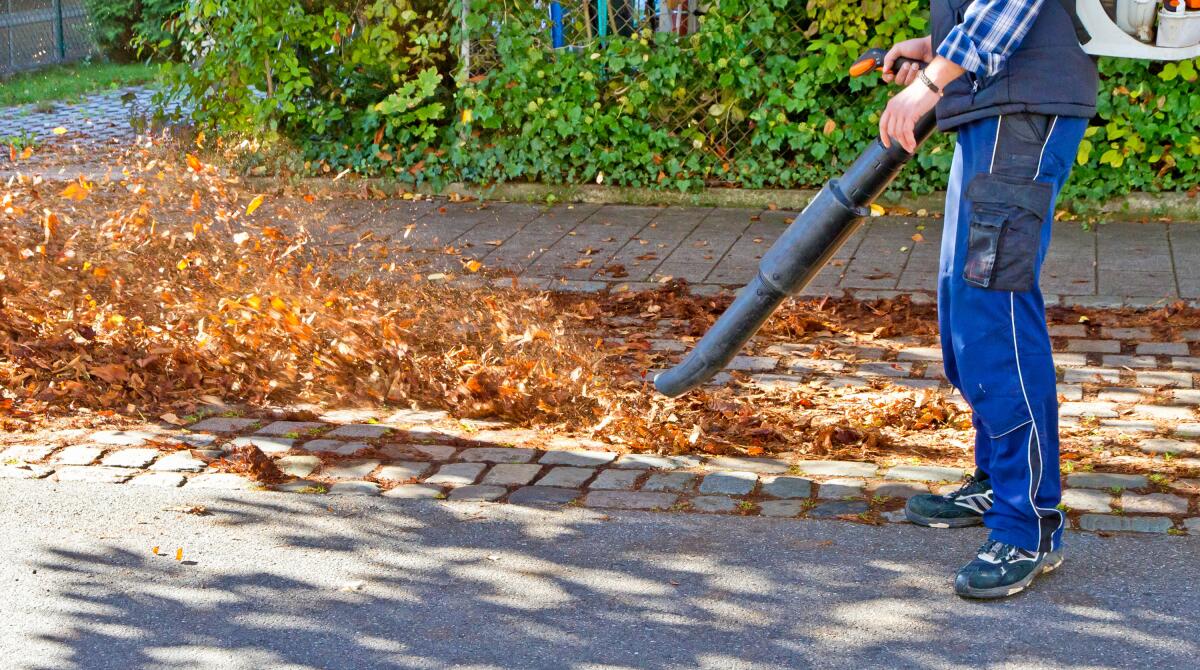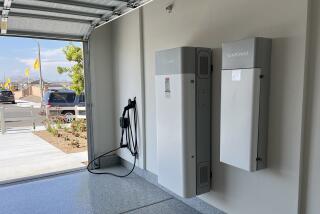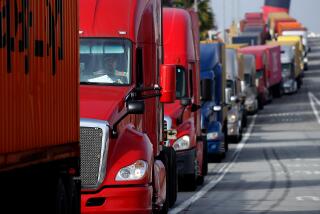Editorial: Leaf blowers and lawn mowers are smog machines. It’s time for California regulators to act

Leave aside, for a moment, the usual complaints about leaf blowers and lawn mowers — that their noise and smell are noxious and inescapable in most neighborhoods. There’s another, more pressing reason to phase out gas-powered garden equipment: This year, for the first time, leaf blowers, weed whackers, lawn mowers and other devices with small off-road engines are expected to produce more smog-forming emissions than passenger cars.
How is that possible? It’s in the numbers — there are more blowers, trimmers and other small engines in California than there are sedans and coupes. And unlike cars, which have gotten cleaner under increasingly stringent emissions standards, garden equipment hasn’t been regulated as strictly.
That should change this year. The California Air Resources Board is finalizing a proposed regulation to require all small off-road engines sold in the state to be zero-emission models, starting in 2024. The rule would affect only the sale of new goods, not the operation of existing gas-powered equipment. (Sorry — the noisy neighborhood leaf blower will still be around a while longer, even if the regulation passes.)
The state regulation has been in development for several years. Worried that it might stall again, Assemblyman Marc Berman (D-Menlo Park) and Assemblywoman Lorena Gonzalez (D-San Diego) have introduced a bill that would prod state air regulators to adopt the rule by next summer and begin phasing out the sale of such gas-powered equipment in 2024, or as soon as it’s feasible.
The vast majority of mowers, blowers, trimmers and small chainsaws in California are for residential use. About half of that equipment is already zero-emissions. More than 25 brands sell plug-in or battery-powered models.
However, the proposed regulation and bill are drawing fire from equipment manufacturers, many of which do not currently make zero-emission equipment, and professional landscapers, who still predominantly use gas-powered equipment. There’s a long, contentious history over regulating garden equipment in California, including in Los Angeles. The city largely ignored its 1998 ban on gas-powered leaf blowers after gardeners launched a hunger strike outside City Hall in protest.
A lot has changed since then, but gardeners are still reluctant to give up their gas-powered equipment. They argue that the upfront cost of zero-emission models is higher and that it’s inconvenient to carry around a bunch of battery packs to keep the equipment running all day. The hesitation is understandable: When battery-powered commercial garden equipment was introduced, it was inferior to gas models. But the technology has gotten much better. Plus, battery-powered equipment is healthier for the user — it’s quieter, has less vibration and doesn’t choke the operator with gas fumes. And in many regions, commercial landscapers can get financial incentives to trade in their gas equipment for zero-emission models.
The rule wouldn’t affect larger pieces of outdoor equipment used in construction and agriculture, which are federally regulated. Manufacturers of small power generators would have until 2028 to develop zero-emission models because the technology isn’t quite as advanced.
It’s clear that California is moving toward a zero-emission future, and no gas-powered engine should be spared — no matter how small. Let’s get moving on cleaner air and, perhaps, quieter garden equipment now.
More to Read
A cure for the common opinion
Get thought-provoking perspectives with our weekly newsletter.
You may occasionally receive promotional content from the Los Angeles Times.






